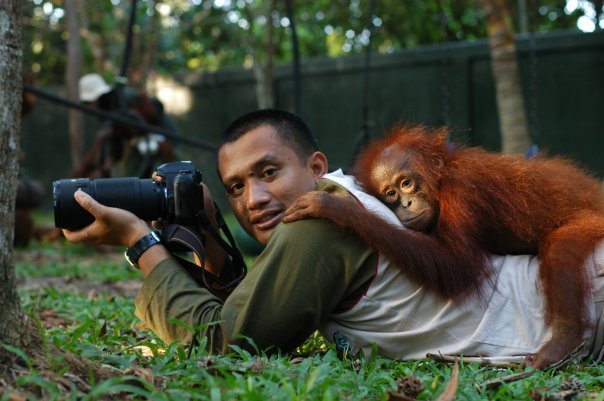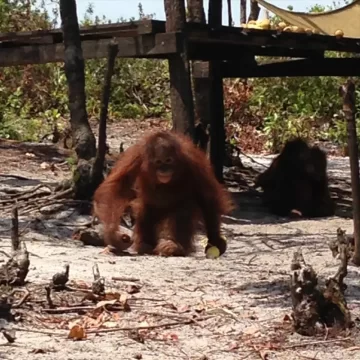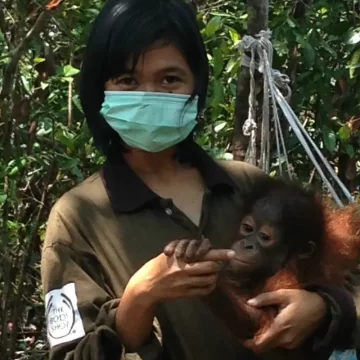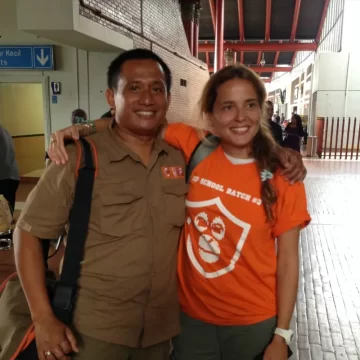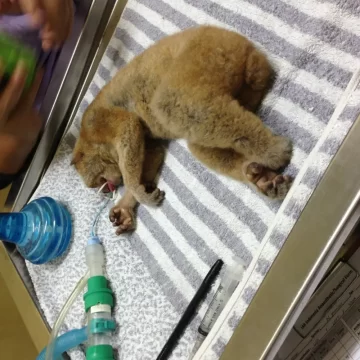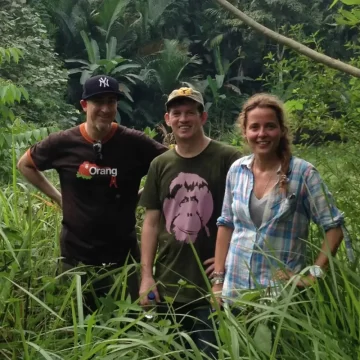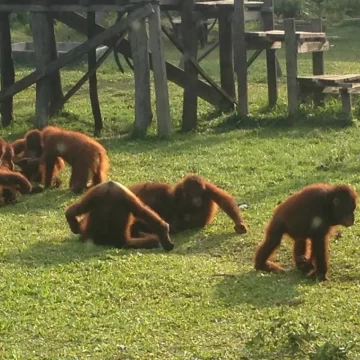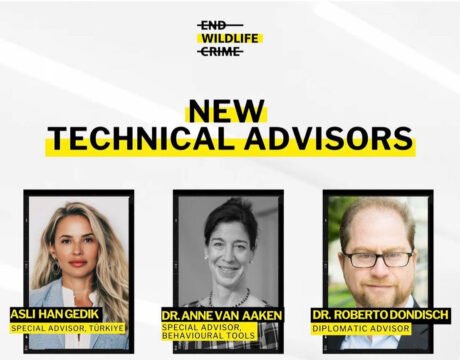It contributes to climate change by releasing large amounts of carbon dioxide into the atmosphere and reduces the earth’s ability to absorb carbon dioxide. Deforestation also results in the loss of habitats for endangered species, such as the orangutan and Sumatran tiger. Additionally, the clearing of forests can cause floods, soil erosion, and landslides. Without significant efforts to protect Indonesia’s rainforests, the country’s natural resources and the health and well-being of its people are at risk.
Orangutan crisis
The orangutan crisis is a dire situation faced by these intelligent primates who are critically endangered due to habitat loss, hunting, and the illegal pet trade. Orangutans are native to the rainforests of Borneo and Sumatra, but deforestation for agriculture, logging, and mining has led to the destruction of their habitats. As a result, orangutans are forced to venture into human settlements in search of food, which often leads to conflict with humans. The illegal pet trade is also a major threat, as baby orangutans are taken from their mothers and sold as pets. Without urgent action to protect their habitats and crack down on illegal activities, the future of orangutans looks bleak.
